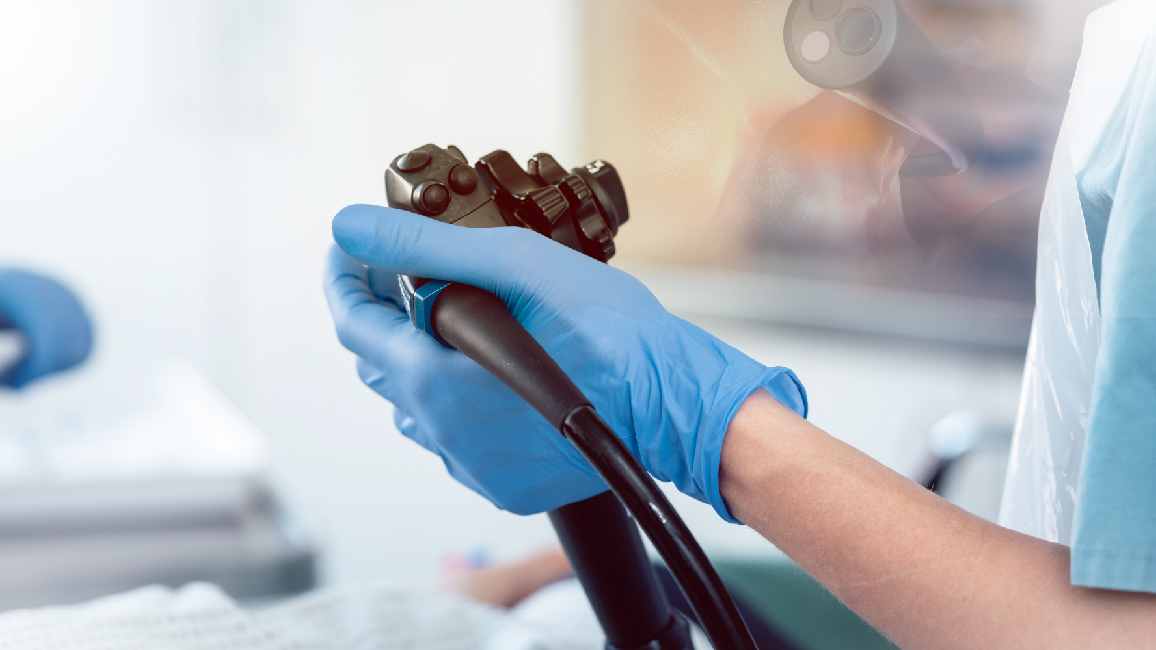Liver RFA for Tumors
Center : Gastrointestinal and Liver Center
Article by : Dr. Sombun Rungjiratananon

Choose to read by topic:
Liver cancer is considered to be one of the most common diseases here in Thailand. Normally, liver cancer is caused by Hepatitis B and Hepatitis C viral infections and a regular consumption of alcohol. These result in chronic liver inflammation, which leads to cirrhosis and eventually liver cancer. Liver cancer is treatable if it is still in its infancy. The major surgery may be considered to remove cancer; however, there’s another method, which is called "liver RFA".
RFA liver ablation or Radiofrequency Ablation liver (Liver RFA) is an alternative way to treat liver cancer without surgery. It is safe and affordable. Liver RFA is also considered to have less risk than traditional surgery and a shorter recovery period.
What is Liver RFA
Radiofrequency Ablation (RFA) is a procedure for destroying tissue in the body by using radiofrequency. The method is minimally invasive and usually offers a fast recovery period. It is primarily used to treat cancer. Liver RFA or RFA liver ablation is common enough in the present. In the process of liver RFA, a needle electrode will be inserted into the body, targeting the cancerous tissue. The electricity will then produce heat, killing cancer cells. Another benefit of liver RFA is that the heat caused by this method can limit internal bleeding by closing nearby blood vessels. The scar tissue usually replaces the tumor with no consequences as you recover.
Radiofrequency liver ablation is a novel method of treating liver cancer, particularly in those with metastasis and an inoperable liver. The patients undergoing this method often report minimal to no pain after the treatment. However, some people may experience some side effects, which will be discussed further below.
Indication for Liver RFA
If surgery is not a good option, then liver RFA is another good candidate to treat liver cancer. Despite its novelty, radiofrequency liver ablation is quite popular. Most of the time, the procedure is used to treat small-sized cancers, approximately less than 5 cm., with less than 3 lumps. This technique is recommended to treat liver cancers in situ and metastasized liver cancers.
Here are indications for RFA liver ablation:
- Patients with severe cirrhosis
- Patients with health issues that are not ready to undergo surgery
- The site of the cancer lies deep within the liver, at least 1 cm from the superficial layer. It has to be far away from the main artery as well.
- Pain relief for patients who have a large size of liver cancers.
- To reduce the size of liver cancers to make surgery easier.
Contraindications for RFA
- Those who have blood clotting disorders.
- Cancer locates near the important visceral organs, such as the gallbladder, the intestine, the stomach, and the heart.
- The size of the lump is larger than 5 cm.
- Patients who have metastases to other organs.
Preparing for Liver RFA
Undergoing liver RFA is similar to other operations, despite the fact that it is considered to be a minimally invasive surgery. Basically, you have to consult your physician regarding your health conditions and undergo a thorough medical history taking and physical examination to determine whether RFA liver ablation is a good option for you.
Here are steps to prepare yourself for Radiofrequency Ablation Liver:
- Consult your doctor about your health issues, medications and supplements, and treatment procedure.
- You will have a physical examination to ensure that you are in good shape for liver RFA, for example, blood tests.
- Fasting about 4-6 hours before the examination.
- It is possible that you may be given an IV.
Also, it is important that you tell your doctor in cases of:
- Pregnancy.
- Having a history of blood disorders.
- Allergy to medications.
- Taking anticoagulant (blood-thinning) medicines (ibuprofen, aspirin).
- Recent infection or fever.
Liver RFA Procedure
The process of treating liver cancer with RFA:
- The doctor will prepare your abdominal skin, especially the right portion below the ribs. This is where the needle will be inserted into your belly.
- The anesthesiologist will give you local anesthesia.
- The needle will be inserted into the belly, right where the lump is located. The images will be shown on the monitor, either from the ultrasound or x-ray computer. This helps the doctor clearly see the location of the lump.
- After that, the energy called Radiofrequency (RF) will be passed through the needle and get into the lump. The heat of an almost 100°C temperature will be generated within the cancer. Generally, the process lasts about 20–40 minutes, depending on the size and number of lumps. The patient may feel a little bit of warmth. Sometimes, the doctor may prescribe sleeping pills or painkillers to relieve pain and heat.
- When the procedure is done, the doctor will remove the needle. The wound will be closed for 24 hours. When the time is right, the wound will be cleaned with antiseptics.
After Liver RFA Treatment
Radiofrequency Ablation Liver offers you a short recovery period that allows you to continue your regular routine. Despite that, there are some precautions and contraindications regarding how you should take care of yourself after surgery.
After the liver RFA procedure is done, you have to lie down on the bed and keep still for about 4-6 hours to prevent internal bleeding. Your doctor may allow you to go home if there are no complications. Since RFA liver ablation is a minimally invasive surgery, you can continue your daily routine as normal, including taking a shower or a bath. However, it is noted that you still have to cover the incision with a bandage for a few days without needing to clean the wound.
In the meantime, you are forbidden to lift heavy objects and exert force, including in some extreme sports. You can take painkillers if you cannot tolerate the pain. It is also important that you keep a good watch over your wound, looking for signs of inflammation or infection. Should these symptoms arise, it is recommended that you seek professional advice.
Liver RFA Complications & Risks
Similar to other surgeries, Radiofrequency ablation liver also has risks and possible complications. It is important that you consult your doctor about the procedure, for Liver RFA may not be the best option for everyone. Your doctor may advise you to consider all aspects of RFA liver ablation before making a decision.
Here are some possible complications and risks regarding liver RFA that you should know about.
- Bleeding
- Extreme pain
- Damage to blood vessels
- Infection
- Injury to organs near the liver
- Gallbladder inflammation
- Damage to the bowels or bile ducts
- Pus-filled infection (abscess) at the cut in the skin
- Flu-like symptoms that start 3 to 5 days later (post-ablation syndrome)
- Risks of radiation exposure if a CT scan is used
Liver RFA Conclusion
Liver RFA, also known as radiofrequency ablation, is a novel method of treating liver cancer. The procedure is minimally invasive and offers fewer risks than major surgeries. Despite its benefits, Liver RFA is considered to be most effective against a small tumor, about 5 cm. wide. The method may have complications and side effects. It is recommended that you consult your doctor about your health conditions and treatment options before making a decision.
Online Consultation
Article of Gastrointestinal and Liver Center





